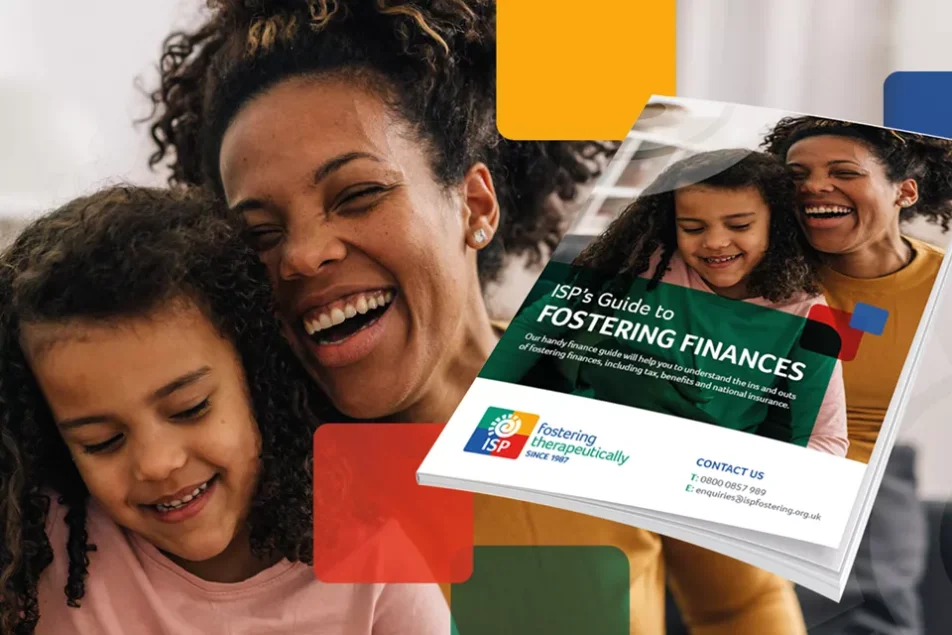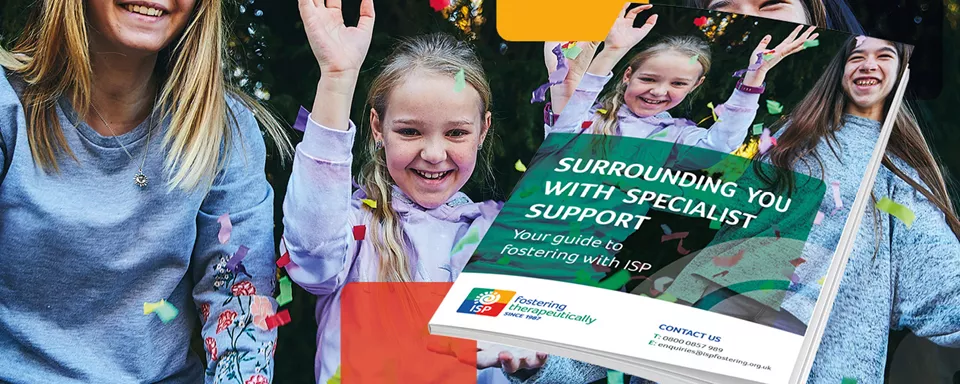
Fostering allowance and pay
Our foster parents are recognised as part of our professional team and paid a generous fostering allowance that reflects their specialist skills, knowledge and experience.
How much are foster parents paid?
Foster parent payments vary depending on the agency or local authority you choose. Our foster parents receive up to £33,054 fostering allowance per year for each child – £35,792 if based in London – completely tax-free.
In addition, you’ll also receive a variety of benefits, such as a holiday and summer activity allowance, school holiday and clothing payments, and access to our exclusive rewards platform, where you can find hundreds of incredible discounts on family experiences and stores across the UK.
Fostering allowance breakdown
The weekly fostering payment is broken down into two key elements:
- Cost of the child – including food, clothing, utilities, transport, pocket money, outings and activities.
- Professional fee – to recognise the professionalism of a foster parent and reward them for their skills, hard work and commitment to caring for a vulnerable child.
Ongoing personal development is important to our foster parents and so we designed a payment structure that rewards continuous professional growth. Find out more about each of our payment tiers below.

Our Payment Tiers
Core
You’ll start your fostering career with ISP on our core payment tier until you’ve completed 12 months of fostering and all core training, or you’ve transferred as an experienced foster parent from another agency or local authority.
You’ll receive £547.89 per week, per child.
If you live in London, you’ll receive £591.85 per week, per child.
Main
Once you’ve completed 12 months of fostering and all core training, you’ll be rewarded with a higher professional allowance on our main payment tier.
You’ll receive £610.61 per week, per child.
If you live in London, you’ll receive £660.66 per week, per child.
Senior
We also offer the chance to progress further to our senior payment tier through the completion of further training, including an NVQ3 or QCF Level 3 Health and Social Care. This can be discussed with your supervising social worker.
You’ll receive £635.67 per week, per child.
If you live in London, you’ll receive £688.31 per week, per child.
Parent and Child
Caring for a parent and their child is a specialist type of placement, requiring specific training.
If you care for a parent and child, you will receive £946.75 per week.
Other fostering allowances
We also offer various additional payments to promote enjoyable fostering experiences for all…
Private fostering agency vs local authority allowance
Generally, independent fostering agencies offer higher fostering allowances than local authorities. This is often because the children placed with local authority foster parents are younger or have less complex needs than those placed with an independent fostering agency.
Local authorities have minimum weekly allowance guidelines for foster parents, which depend on where you live and the age of the children you care for. These minimum allowances range from £165 – £289 per week, compared to independent fostering agencies which generally pay between £350 – £450 per week. We pay between £547 – £688 per week.
As a therapeutic fostering agency, our foster parents are specially trained to care for children and young people who have faced lots of upheaval and trauma, and as such, are regarded as fellow practitioners and rewarded with a generous allowance that recognises their professionalism.
If you have any questions about foster care allowances, or want to learn more about fostering, please get in touch with our team who will provide all the information you need.
Tax and foster care allowance
Foster parents receive an annual tax allowance worth £19,690 on their income from fostering, plus an additional weekly relief for each child in their care – generally making most of their fostering income tax-free.
The weekly tax relief depends on the age of the child in care:
- £415 per week for each child under the age of 11 years old
- £495 per week for each over 11 years old
As a foster parent, you’ll be classed as self-employed and will need to submit a tax return each year to HMRC.

National Insurance, Benefits and Pensions
Most foster parents won’t need to pay National Insurance as their profit from fostering is likely under the threshold. However, some may decide to continue paying Class 2 National Insurance so they’re entitled to various state benefits in future, such as retirement pension, employment support allowance (ESA) and job seeker’s allowance.
Income from fostering shouldn’t affect means-tested benefits either as the fostering allowance isn’t counted towards income when working out the eligibility for benefits such as housing allowance, income support and more.

What do the fostering payments cover?
As well as providing a professional fee to the foster parent, the payment covers the cost of caring for a child, which includes food, clothing, utilities, transport, pocket money, outings, activities and more. The basic guidelines are:
- Food – £50 per week
- Clothing – £30 per week
- Hobbies, interests and activities – £30 per week
- Personal – £20 per week
- Telephone – £10 per week
- Transport – £25 per week
- Birthdays and religious festivals – £200 per year
- Holidays (in addition to the ISP annual payment) – £450 per year
Average additional costs per child
Every child’s needs are unique and so local authorities may authorise additional expenses depending on their individual circumstances. For example, if a child doesn’t attend school due to exclusion, additional expenses may be agreed upon for activities that promote learning.
There may also be excessive travel costs – for example if the child’s school and contact sessions are far from your home. These additional costs will be agreed upon with the local authority before the placement begins.
Can I continue to work while receiving the foster care allowance?
The fostering allowance provides a generous professional fee so that you can dedicate your time and energy to meeting the needs of the children and young people in your care, without needing to seek employment elsewhere.
However, we recognise this is not always financially viable and there may be circumstances where you may still need to work a part-time role (sometimes full-time). As part of the application process, we will learn more about your personal circumstances so we can understand whether you’d be able to meet the needs of a child in your care.
Some of the things we might explore include:
- Are you applying to foster alone or with a partner?
- How many hours do you plan to work?
- What hours do you work?
- Where is you work based?
- Is your employer flexible?
- Will you be available over the school holidays?
- Do you have a strong support network that can help in an emergency?
Frequently Asked Questions
Unfortunately, foster carers only receive a fostering allowance when they have a child in placement.
However, we receive hundreds of referrals every day from local authorities and have a dedicated Referrals Team who match these children with the skills and experience of our foster parents.
In addition, we work closely with our foster parents whose children are approaching the date that’s planned for them to move on from their care and work with local authorities to identify any potential placements that can be planned in future.
Foster carers receive a £19,690 tax allowance on their annual fostering income, plus an additional weekly tax relief for each child in their care – known as Qualifying Care Relief – meaning that they can receive payments up to a certain amount, completely tax-free.
Whether you pay tax will depend on several factors, including the number of children you have in placement, the type of placement and whether you receive enhanced fees and whether you receive any other income aside from fostering.
However, in general, if you’re caring for 1 child and do not have any other source of income, the Qualifying Care Relief should be higher than the income received and therefore you will not pay tax.
The fostering allowance isn’t counted towards your income, therefore will not affect your eligibility to receive child tax credits or any other means-tested benefit.
However, child tax credits can only be claimed for your own children and not for any child within your care.
Speak to our team today
Whether you’re looking for more information or you’re ready to apply, we’re here to help you on your journey.
Enquiry Form
The company takes the requirements of GDPR seriously in ensuring the privacy and lawful processing of personal data provided to us by you. Please view our privacy notice which explains how the company will manage and use your personal data. This site is protected by reCAPTCHA and the Google Privacy Policy and Terms of Service apply.

